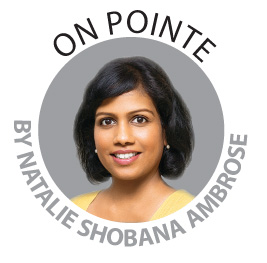THIS time last year, the air was different. A new Malaysia had just been born and there was a sense of hope for some and a possible dread for others. While we didn’t know how the year would play out, we were sure about one thing; that it would be different. At least we hoped this change would mean a better Malaysia.
Change is uncomfortable and for a nation in transition, change is just that – gratingly uncomfortable. It is meant to be chaotic, it is meant to be strenuous, it is meant to be difficult. It is not instant, automatic or fast. But somehow in the lead up to the elections, we forgot to prepare ourselves for what that change would translate into as we build this new Malaysia. It is almost like couples who spend more time and energy on getting the wedding day right but not preparing for the marriage itself and then becoming disenchanted down the line.
Many worked hard and waited so long for the election result and a change of government, but weren’t prepared for the uncomfortableness that comes with it. Now here we are rather disillusioned because things are not changing fast enough. We expected that this change was to happen on our terms, and it hasn’t.
After years of growing oppression we thought a new Malaysia would mean immediate change. So in spite of the many positives of this new Malaysia, there is a deep sense of disenchantment due to the many missteps, which is gratingly uncomfortable.
Egyptian activist Wael Ghonim, who is said to have galvanised pro-democracy demonstrations in Egypt, aptly puts it “The transition from dictatorship to democracy is always very difficult, and if you read a history of any country that went through this, it wasn’t easy. And, you know, you don’t end dictatorship one day and the next day you are a fully fledge democracy.”
Our transition is not as visibly drastic as that which happened in Egypt or even what is going on right now in Hong Kong. Our transition is different. It isn’t outwardly violent, nor is it volatile and unpredictable but it is sometimes painful and it is many times confusing. So how do we make sense of what is going on in the country and how do we transform these feelings of disenchantment into solutions.
First, the country is fragmented, and there is a reason for this. Conventional wisdom tells us that to stay in power, unity is the enemy and you have to divide the people. While we reminisce about the good old days of a picture perfect Malaysia, the kind of Malaysia we see in adverts – touching, heart tugging nostalgia, even in its half truths, we know that within a short time, that kind of solidarity is no longer.
But it didn’t just disappear overnight. Policies were changed, more and more barriers to divide were erected and we started to speak of us and them. These old dangers rarely go away completely. The seeds of hatred that continue to be planted have come into fruition now. That is why boycotts are called “prioritising” instead of what it really is – a form of segregation. That is why road accidents are spoken in terms of race and not perpetrators and instigators. That is why human kindness in Malaysia is praised only when it is a story of a person of one race helping a person of another race. Which is ridiculous – human kindness is colour blind. That is why we pick and choose who is to be deported and who gets to stay and cause trouble. Because if their presence divides, then it’s easier to rule. So as long as Malaysia’s first loyalty is not to its own people and its own citizens as a collective, we will continue to witness hate in this new Malaysia.
Second, we are a dumbed down nation. Setting aside the web of issues of our education system, we have been socialised to not think, speak or discuss issues in a mature and informed manner. While there is an improved level of media freedom, the level of perspective, commentaries and well-researched articles are few and far between. But in saying that, even when there are well-researched articles and programmes, how many Malaysians engage with such material? We rather believe the bogeyman stories that confirm our biases than to actually think things through and discuss them openly and listen to opposing views. That is why when the UN Special Rapporteur on Extreme Poverty and Human Rights report recommended that Malaysia’s poverty rate be reassessed, instead of maturely discussing it, the leadership’s reaction was to dismiss it. How does the country or its people benefit from an undercounted poverty rate? And because we are in the habit of outsourcing our thinking to others, we are easily manipulated. This is exactly how 1MDB got so far and why a sex tape once again has more reporting space than real issues that the country is facing. So much lost potential because we are so comfortable in this bubble of ignorance like the proverbial “frog under the coconut shell”.
Third, we forgot the importance of the common good. When we talk about a Malaysian heritage and national identity, we have conveniently disregarded the concept of collectiveness, consensus and shared responsibility, something that was part of kampung life and community living.
People prioritised cohesiveness and solidarity acting beyond their own private interest. It takes a different level of maturity to act this way especially in today’s Malaysia. If we actually believe in a common good, we would not blindly implement legacy decisions from the previous government. We would acknowledge policy failures and ensure that the motivation and intention behind every decision and policy change is for the common good of all Malaysians and not to divide.
We would make better decisions for the environment and not be a welcoming dumping site. We would be putting up the barricades to protect ancestral lands from logging not arresting its guardians.
We would not laugh when employees of a national newspaper are not paid their wages because we care if 800 Malaysians lose their jobs.
If we actually believed in the common good, we would want to eliminate racial discrimination. But it is hard because all of us, you and I, think in terms of race, religion and self. So now when we look at what it takes to rebuild a nation and our feelings of disenchantment, do we challenge this mentality and way of thinking/living? And do we ask whose responsibility is it to build this new Malaysia?
Comments: letters@thesundaily.com














